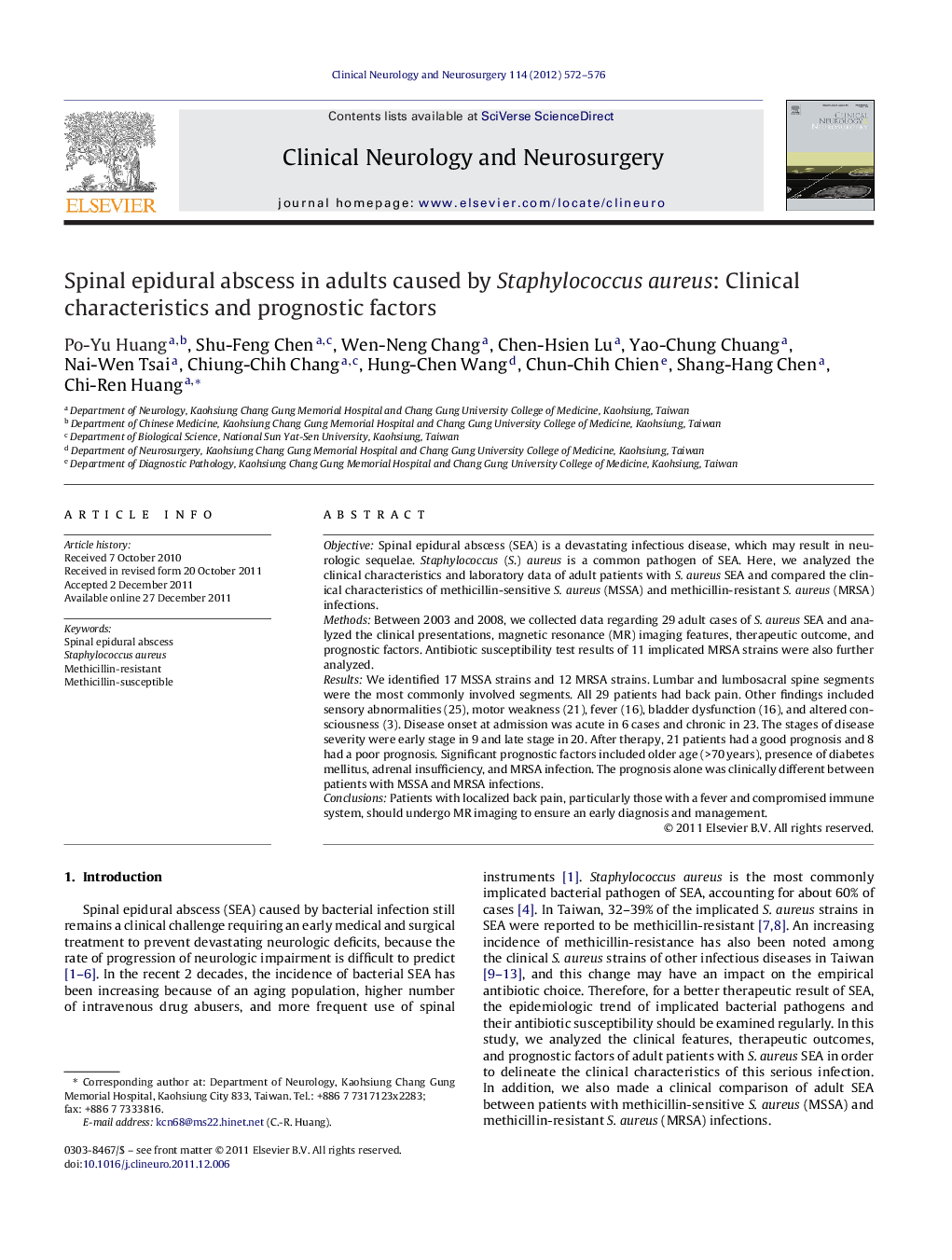| Article ID | Journal | Published Year | Pages | File Type |
|---|---|---|---|---|
| 3040804 | Clinical Neurology and Neurosurgery | 2012 | 5 Pages |
ObjectiveSpinal epidural abscess (SEA) is a devastating infectious disease, which may result in neurologic sequelae. Staphylococcus (S.) aureus is a common pathogen of SEA. Here, we analyzed the clinical characteristics and laboratory data of adult patients with S. aureus SEA and compared the clinical characteristics of methicillin-sensitive S. aureus (MSSA) and methicillin-resistant S. aureus (MRSA) infections.MethodsBetween 2003 and 2008, we collected data regarding 29 adult cases of S. aureus SEA and analyzed the clinical presentations, magnetic resonance (MR) imaging features, therapeutic outcome, and prognostic factors. Antibiotic susceptibility test results of 11 implicated MRSA strains were also further analyzed.ResultsWe identified 17 MSSA strains and 12 MRSA strains. Lumbar and lumbosacral spine segments were the most commonly involved segments. All 29 patients had back pain. Other findings included sensory abnormalities (25), motor weakness (21), fever (16), bladder dysfunction (16), and altered consciousness (3). Disease onset at admission was acute in 6 cases and chronic in 23. The stages of disease severity were early stage in 9 and late stage in 20. After therapy, 21 patients had a good prognosis and 8 had a poor prognosis. Significant prognostic factors included older age (>70 years), presence of diabetes mellitus, adrenal insufficiency, and MRSA infection. The prognosis alone was clinically different between patients with MSSA and MRSA infections.ConclusionsPatients with localized back pain, particularly those with a fever and compromised immune system, should undergo MR imaging to ensure an early diagnosis and management.
